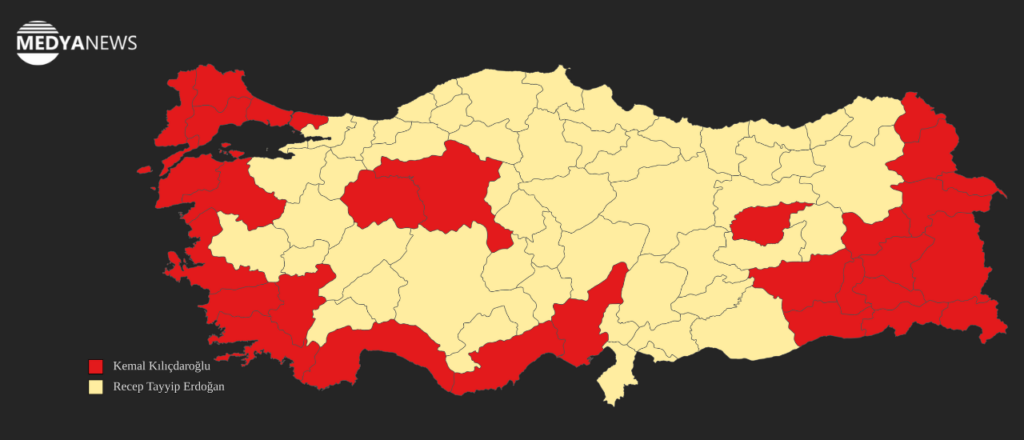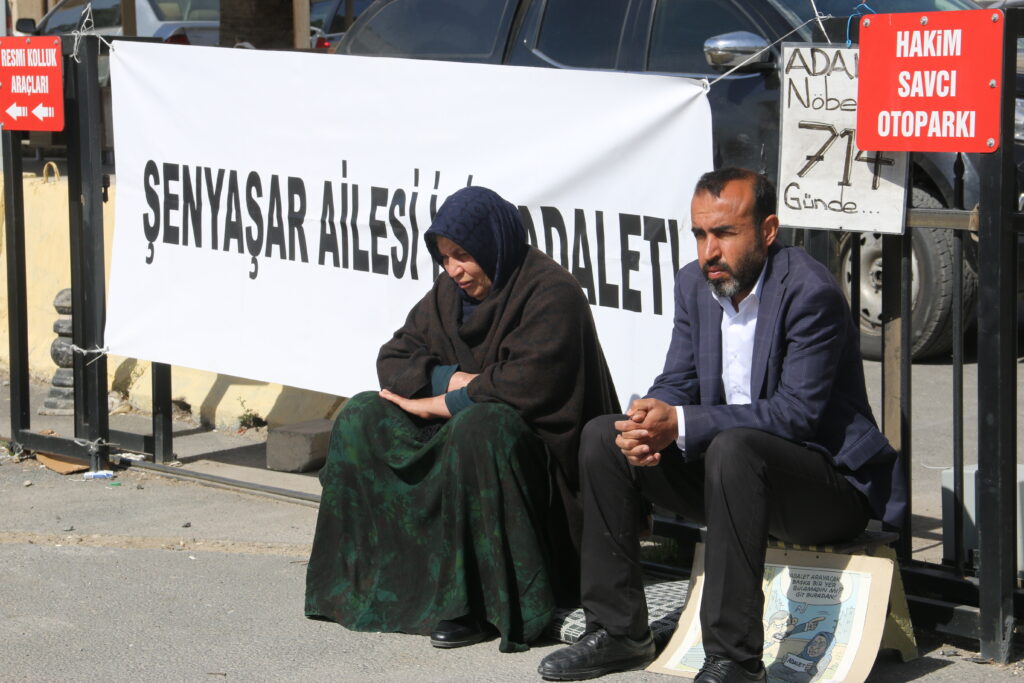Robin Fleming
It has been just over a week since the conclusion of Turkey’s presidential election on 28 May. The first round of elections was held on 14 May, but neither incumbent President Recep Tayyip Erdoǧan nor opposition candidate Kemal Kiliçdaroǧlu were able to obtain the necessary majority (50+) of votes to declare a winner. The second round of elections was held three weeks later and saw Erdoǧan and his ruling Justice and Development Party (AKP) re-elected, guaranteeing that his 20 year reign over Turkey will continue at least until 2028 when the next presidential elections are due.

The elections results were a heavy blow for Kurdish voters who came out in droves to vote Erdoǧan out of power – polls in Kurdish-majority regions showed obvious and steep decline of support for Erdoǧan. But the disappointment doesn’t come only from the results themselves, but also the world and media’s reaction to those results. For months prior to the elections, Turkish politics and specifically the question of the state of “Turkish democracy” was given quite a lot of attention – with headlines like these spread across every reputable Western news outlet:
The Guardian –
Turkey’s choice could not be starker: more cruelty under Erdoğan, or the return of justice and hope
The BBC –
Turkey election: Erdogan rival Kilicdaroglu promises freedom and democracy
NPR –
Erdogan’s victory could be fateful for Turkey’s democracy and role in the world
The Washington Post –
Erdogan won in Turkey. What does the West do now?
The article in the Washington Post, published on 30 May, begins by saying:
“Turkish President Recep Tayyip Erdoǧan, who won another five-year term in elections over the weekend, is the kind of ally Washington and its Western allies wish they could do without.”
It continues by naming some of the Presidents latest crimes and offences towards ‘the Western world,’ such as Turkey’s continued assistance to Russia, its constant ‘under-mining of democracy and civil rights’ and Turkey using its veto to block Sweden bid to join NATO.
Given that it is clearly the shared perspective of Western mainstream media and political thought that Erdoǧan is an unreliable ally, and an undemocratic leader for his own nation you might expect there to be some outcry, some expression of concern from Western leaders that this problematic character is set to reach his third decade of sitting in power. But instead we have United States Secretary of State Antony Blinken tweet the following message:
I called Turkish Foreign Minister @MevlutCavusoglu today to relay my congratulations on President Erdogan’s re-election. I look forward to our continued work with such a valued @NATO Ally and bilateral partner.
— Secretary Antony Blinken (@SecBlinken) May 30, 2023
[Secretary Blinken tweets “I called Turkish Foreign Minister @MevlutCavusoglu today to relay my congratulations on President Erdogan’s re-election. I look forward to our continued work with such a valued @NATO ally and bilateral partner.”]
As disappointing as it may be, Kurds and their allies are used to disappointment from those who claim to support them. This is not the first time this has happened. I saw it happen in 2019 when then President Trump announced he would be withdrawing American troops from North and East Syria (NES), essentially green-lighting the subsequent Turkish invasion, to overwhelming bi-partisan outrage. This outrage was predictably forgotten, or at least greatly diminished in a few months when Turkey continued its attacks on NES in direct violation of its ceasefire agreement.
Again support for Kurdish and Kurdish adjacent movements flared up in September of 2022, with the murder of 22 year-old Kurdish woman, Jina (Mahsa) Amini, in Tehran at the hands of Iranian mortality police. The protests sparked by Amini’s murder continue until today, the Kurdish slogan ‘Jin, Jiyan, Azadi’ (‘Women, Life Freedom’) still being shouted in the streets. But the international community has definitely shifted their attitude towards Iran. A few months following the beginning of protests, and death of Amini Iran was removed from the UN Commission on the Status of Women. This seems like progress in recognising crimes against Kurds, no? Well, on 2 June of this year Iran was elected the Vice President of the UN General Assembly, once again memory falters when it comes to continued abuses against Kurdish people.
But we remember. Kurds and their allies understand the power of memory, the power of continued resistance in the face of an apathetic world and constant betrayal. The power of memory is seen when the displaced inhabitants of the Shebha region of NES continue living in tents, in a state of limbo, just to remain close to their homes in Afrin they were driven out from by Turkey’s operation Olive Branch. They remember.

The Şenyaşar family remembers too. They lost a father and two sons in 2018 when attacked by bodyguards and relatives of ruling Justice and Development Party (AKP) MP İbrahim Halil Yıldız in Turkey’s Kurdish-majority south-eastern province Şanlıurfa. Mother Emine Şenyaşar and her surviving son, Ferit Şenyaşar, have been campaigning for justice in front of the Courthouse since March 2021. The justice vigil has continued for around 800 days. The power of memory is theirs.
The power of memory is used when Kurds continue to ceaselessly and tirelessly campaign for the release, or at minimum end of the isolation, of Kurdistan Workers Party (PKK) leader Abdullah Öcalan who was arrested in 1999. That is 24 years, nearly my entire lifetime, and they haven’t forgotten for a moment.
Berxwedan Jiyan e. Resistance is life. Another common Kurdish slogan. It recognised that the Kurdish movements goals of women-led direct democracy, of an ecological society, of minority rights will not be met easily, will not be met over-night. It will take struggle, it will take life times. But as western media and leaders stumble around in a constant haze of amnesia, the Kurdish movement doesn’t forget a thing and that is their greatest strength.
Robin Fleming is an American Researcher who worked with the Rojava Information Centre and specialises in North and East Syria.










